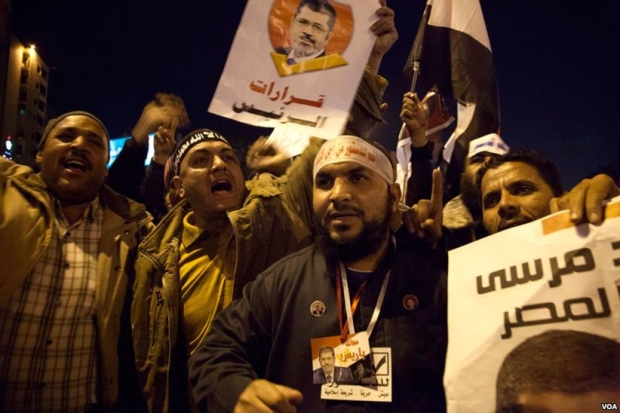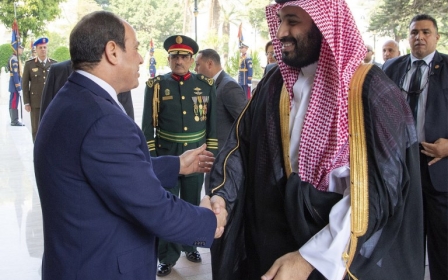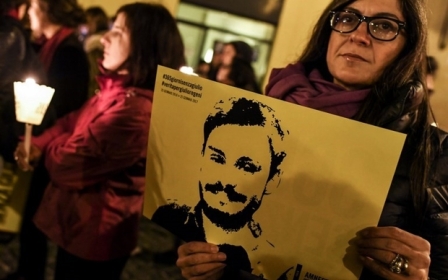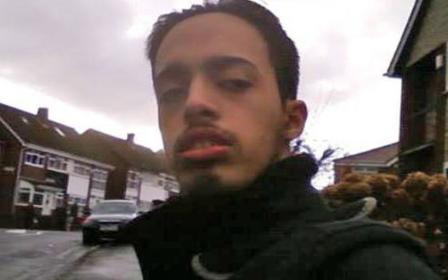Egyptian court hands Muslim Brotherhood leaders life sentences
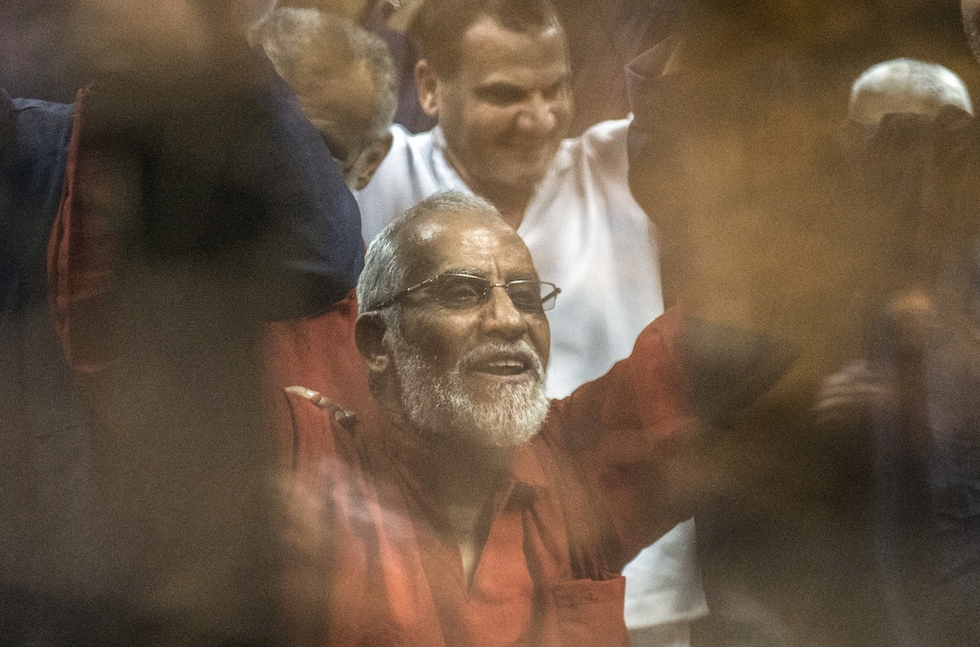
An Egyptian court on Wednesday sentenced Muslim Brotherhood leader Mohamed Badie and his deputy to life in prison, judicial sources said, in a retrial over violence during the overthrow of Brotherhood-backed president Mohamed Morsi in 2013.
The sentence is one among several trials and retrials for Badie, Khairat al-Shater and other leaders of the party that ruled Egypt before the military ousted Morsi following protests against his rule.
Badie and Shater were sentenced to life in prison in 2015 following violence between Brotherhood supporters and their opponents near the group’s headquarters.
Four others were also handed life sentences on Wednesday.
The court acquitted Saad al-Katatni, parliament speaker under Morsi, along with a former minister, two prominent Brotherhood figures and two others.
The defendants can appeal the ruling for the last time before the Court of Cassation, Egypt’s highest civilian court.
The public prosecution may also appeal the acquittals or the life sentences that two defendants received instead of death sentences.
The defendants faced charges of inciting violence against the demonstrators in front of the Brotherhood headquarters, aggravated battery and the possession of firearms.
Authorities had referred 18 defendants to trial in the case. Five remain at large and one died before receiving a sentence.
The latest retrial began when the Court of Cassation accepted 13 defendants’ appeals in January 2016.
The security sources said National Security Agency officers arrested Ahmed Suleiman at his home in Minya governorate on Tuesday and later transferred him to Cairo.
Suleiman had criticised the arrest and trial of Brotherhood leaders after Morsi was ousted.
After Morsi’s removal, Egypt cracked down on its oldest and most organised Islamist movement, killing hundreds of its supporters during the violent dispersal of a sit-in, throwing thousands of its supporters in jail and labeling the group a terrorist organization.
The Brotherhood says it is a peaceful movement and denies links to attacks by militants.
Continuing crackdown
Since Morsi was ousted in 2013, Egyptian pro-democracy activists have faced continuing repression.
At least 40 rights workers, activists and lawyers have been rounded up by Egyptian authorities since late October and are being held in "unknown places," Human Rights Watch (HRW) said last month, calling on the authorities to reveal their whereabouts.
"Many of those arrested were providing legal and humanitarian support to families of political detainees," who were also reported missing after their arrest, the rights group said in a statement.
HRW said it had spoken to "a lawyer, a human rights activist and two political activists who have been in direct contact with the families of those arrested" since the end of October.
"The crackdown on Egyptian security agencies is now affecting... those brave men and women who have tried to protect the missing," said Michael Page, deputy director of HRW Middle East.
One of the sources consulted by HRW reported at least 80 disappearances since the end of October, but only 40 have been "verified" by the organisation.
"The Egyptian authorities should immediately reveal the place of detention of prisoners, release all those arrested only for exercising their rights, and bring before a judge the others to consider their detention," said the rights group.
Sources told HRW that some of the detainees were close to the Egyptian Coordination for Rights and Freedoms, an independent human rights group it said has come under fire from pro-government media in recent months, the AFP news agency reported.
New MEE newsletter: Jerusalem Dispatch
Sign up to get the latest insights and analysis on Israel-Palestine, alongside Turkey Unpacked and other MEE newsletters
Middle East Eye delivers independent and unrivalled coverage and analysis of the Middle East, North Africa and beyond. To learn more about republishing this content and the associated fees, please fill out this form. More about MEE can be found here.


